Indigenous Governance Database
Tribal Law and Order Act (TLOA) 2010

Melissa Tatum: Striking a Balance on What to Include in Your Constitution (Presentation Highlight)
In this highlight from the presentation "Key Things a Constitution Should Address: 'How Do We Resolve Disputes?'," legal scholar Melissa Tatum discusses the importance of a Native nation striking a balance between what to include in its constitution and what not to include in its constitution so…
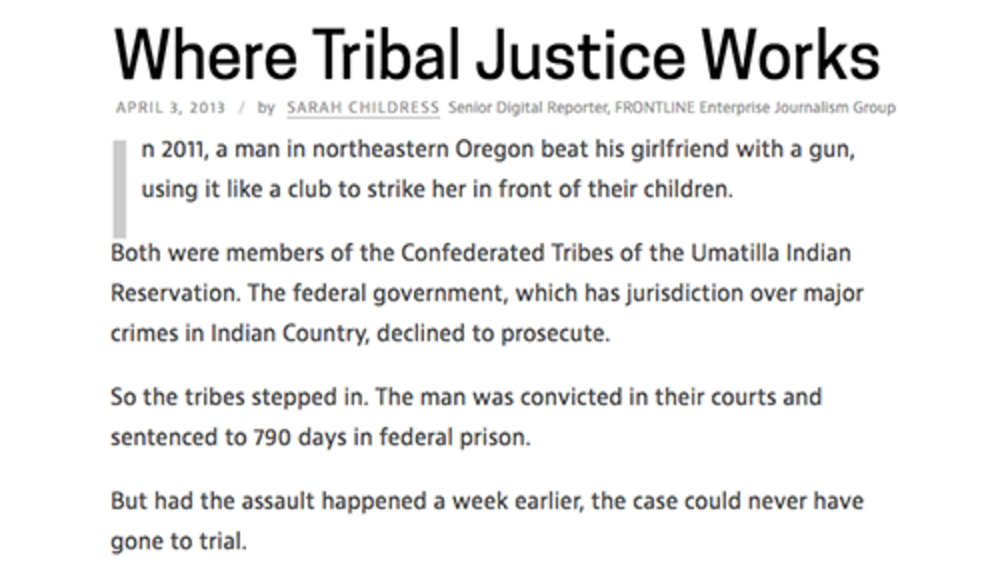
Where Tribal Justice Works
In 2011, a man in northeastern Oregon beat his girlfriend with a gun, using it like a club to strike her in front of their children. Both were members of the Confederated Tribes of the Umatilla Indian Reservation. The federal government, which has jurisdiction over major crimes in Indian Country,…
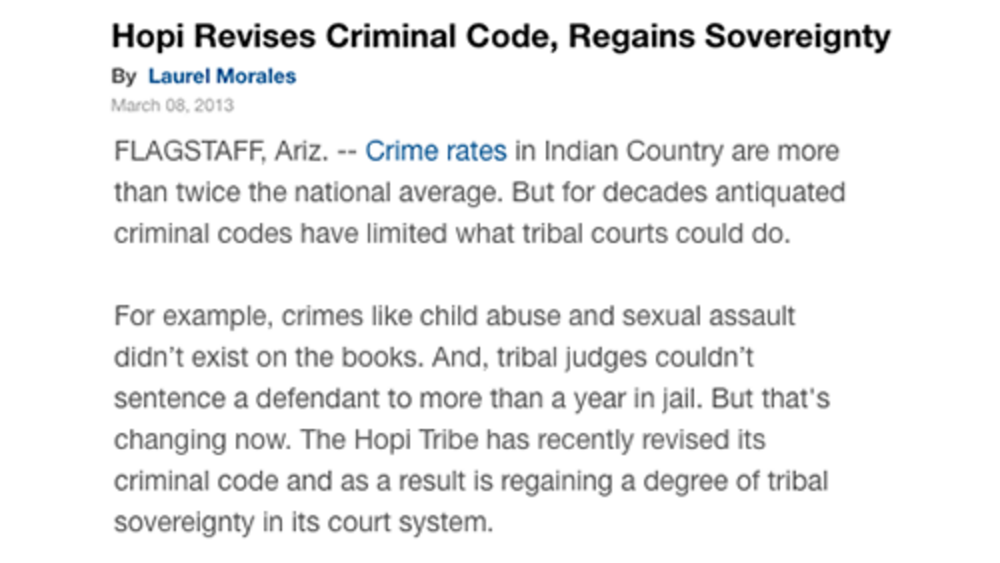
Hopi Revises Criminal Code, Regains Sovereignty
Crime rates in Indian Country are more than twice the national average. But for decades antiquated criminal codes have limited what tribal courts could do. For example, crimes like child abuse and sexual assault didn’t exist on the books. And, tribal judges couldn’t sentence a defendant to more…
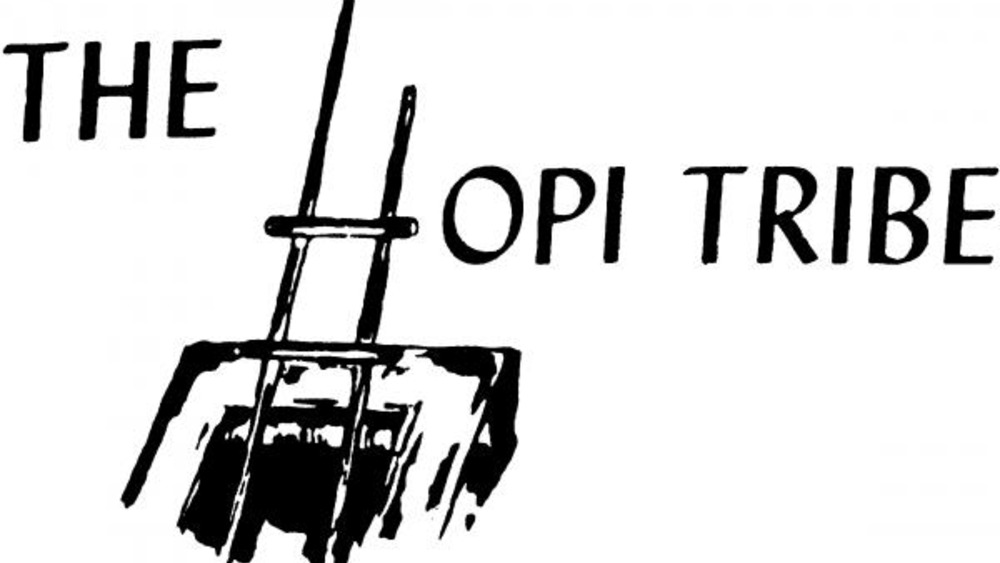
A Leader Emerges: Hopi Tribe Adopts New Criminal Code According to Tribal Law and Order Act Standards
The Hopi Tribal Council voted to adopt a new criminal code on August 28, thereby scrapping a 1970s version that all but failed to punish sex crimes and limited tribal prosecutors to one-year terms, even for murder. In doing so, the small Arizona tribe emerged as a leader in Indian country when it…
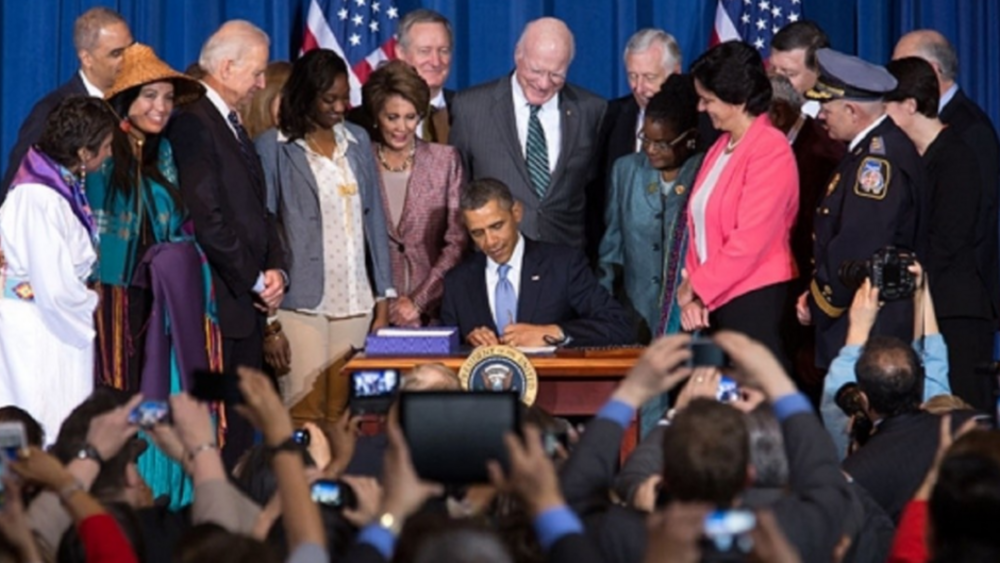
VAWA 2 Years Later
It’s been just over 2 years since Congress reauthorized the Violence Against Women Act. In February of last year, three tribes participated in a pilot project to exercise the special domestic violence criminal jurisdiction (SDVCJ) portion of the law. Under SDVCJ, some tribes can prosecute Natives…
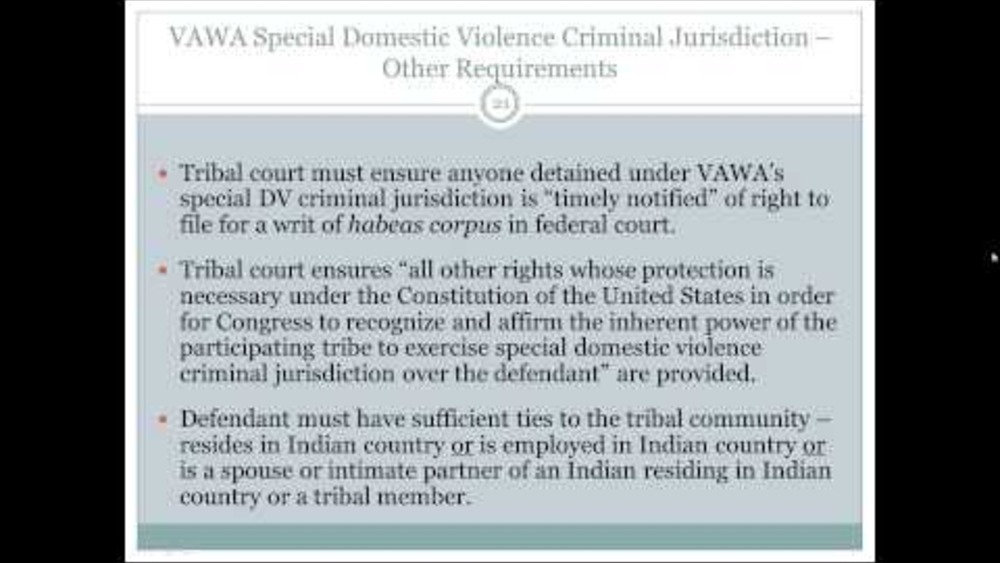
Implementing VAWA's Expanded Jurisdiction in Our Tribal Courts
In coordination with the Tribal Law and Policy Institute, NCAI hosting this webinar on April 5, 2013. In this webinar, panelists discussed the Violence Against Women Act (VAWA) provisions that expands tribal court jurisdiction over all persons for certain crimes committed on the reservation.
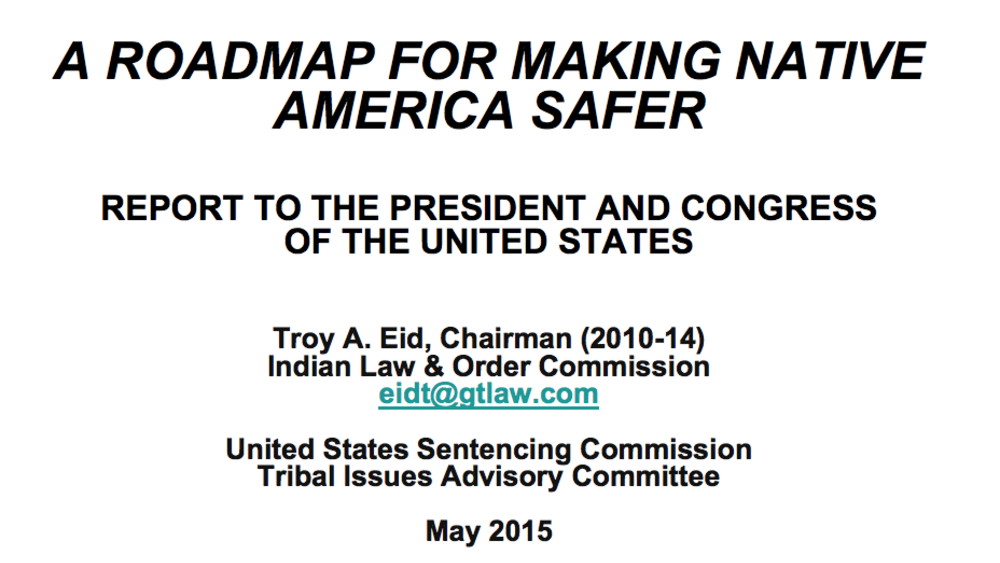
A Roadmap For Making Native America Safer: Report To The President And Congress Of The United States
A Roadmap for Making Native America Safer (Roadmap) provides a path to make Native American and Alaska Native communities safer and more just for all U.S. citizens and to reduce unacceptably high rates of violent crime rates in Indian country. The Roadmap is the culmination of hearings,…
